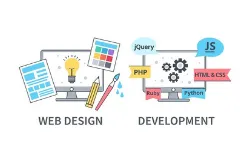How do I introduce myself in an interview?
The initial part of a job interview sets the mood for the whole interaction. This is the moment when you show the world how amazing you are. How can you fit into the position? Two factors, preparation and action, are necessary to enable yourself to communicate efficiently. You will find some tips and tricks to help you deliver the introduction with poise and impact.
Here are some of the important aspects of making the right self-introduction
1 Start with a Friendly Greeting:
The interviewers' tasks might be as scary as they are for the candidates. The first and simple thing will always be a smile, establishing a normal relationship from the beginning.
2 State Your Name Clearly:
Following the direct greeting, say your name loudly and clearly. For example, "My name is (Your Name).” Pronounce it clearly so that it’s easy to understand.
3 Provide a Brief Overview of Your Background:
After your name comes your bio description, which can be 2-3 sentences. This should include your qualifications, experience, and previous job position (if any). If you are a recent graduate, you can include your academic record in the application.
4 Express Your Enthusiasm for the Opportunity:
Make sure to highlight your resume outline with words reflecting your company's ambition. For example, you can respond, "I'm thrilled to be here today and would like to say how I believe my experience and skills perfectly reflect the position you are looking for in the organisation." A positive note with excitement can inform the interviewer about your eagerness to engage with the role and the company.
5 Thank You message:
Lastly, it is vital to include your gratefulness note at the end of your introduction section, where you outline your position in the company. For articulate and professional applicants, it is often proposed to integrate a short note like "I am delighted to present my experience here" or "Thanks in advance for considering me."
Advice and Techniques for Giving a Strong Introduction:
Exercise, Exercise, Exercise: Repeatedly rehearse your opening speech until you become experienced enough to sound conviction and comfortable. Make sure you practice first in front of the mirror or with someone nearby; It could be a friend or a family member who can help you as the real-time assessor.
1 Keep It Concise:
The content or information you share must be honest and truthful. The opening sentence in the introduction should be brief and lay out the idea to give the interviewer an overview of all the points but not be drowned by the information.
2 Tailor Your Introduction to the Role:
Lastly, you should consider the necessity of discovering the organization and the position requirements in order to match them.
3 Maintain Eye Contact and Body Language:
It is crucial to be confident in front of your interviewer; therefore, eye contact, good posture, and open body language are essential tools. Each part of our bodies can tell a story in the way we use space and how we relate to others that we also communicate.
4 Stay Calm and Confident:
Spend a second reframing your thoughts. Moreover, you should also take care of your speech, talking properly and slowly. Furthermore, reinforce in you that you have your accomplishments and what makes you the best-suited for the position.
In an interview, you have the opportunity to build a good rapport with the interviewer right at the start and also define the basis of a qualitative conversation. The right way to start is to build a long-lasting and concerned introduction to yourself, depicting your professionalism by using these pieces of advice. In order to stick in an interviewer’s memory, prepare to be confident in the way you speak and behave.
Candidates who are learning how to prepare for an interview should look out for the Apponix Academy as this platform avails the necessary tools and resources which will enable them to be more confident and prepared for interview settings.
Factoring in the practical sessions to groom you for real-life interviews and the mixed-reality module that measures your skills and offers expertise. Tips are a certain part of customizing your learning experience. You can increase your level of preparedness and learn different interviewing styles from the Apponix platform, which offers individualized remedial feedback, technical skill improvement and communication skill development.







